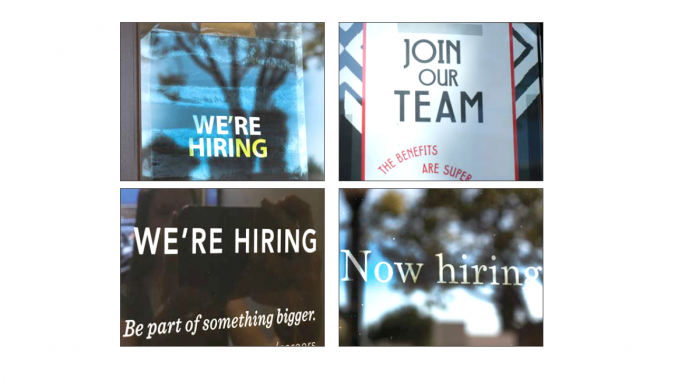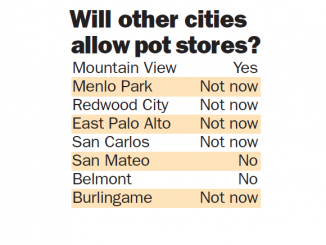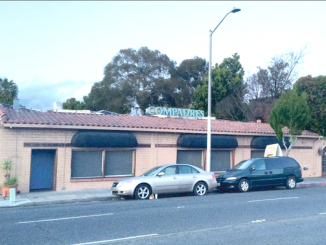
BY SARA TABIN
Daily Post Staff Writer
Palo Alto restaurateurs say the region’s housing crisis is contributing to a severe labor shortage, which is harming their businesses. As high-paid tech workers move in, rent goes up and lower-wage workers leave.
“(The labor crisis) is really terrible,” said Camelia Coupal, co-founder of Palo Alto’s Coupa Cafe. “It’s been getting worse and worse every year.”
California’s statewide unemployment rate is 4.1%. Santa Clara County has an unemployment rate of 2.8% and San Mateo County has the state’s lowest at 2.3%. But having a job in the mid-Peninsula doesn’t mean one will be able to afford housing. Coupal said that as rent in the city goes up, it is harder to attract and retain employees.
“If every single cent they make goes to pay rent, they have nothing even to eat after that,” said Coupal.
Workers typically have to live in other cities and commute for hours to Palo Alto, a daily routine that is not easy given the traffic and gas prices in the region. A two-hour limit on free parking in downtown Palo Alto adds additional pressure on workers, who must leave their shifts to move their cars, said Coupal.
Coupa offers full benefits and good pay, said Coupal, but they can only increase wages so much.
“I can’t sell a $20 coffee to pay staff $30 an hour,” she said.
The city, she said, needs more affordable housing.
Housing crisis forcing people to leave
Guillaume Bienaime, the chef and owner of Zola in Palo Alto, pleaded with the city to do more to create housing at Monday’s City Council meeting. One of Zola’s best employees, he said, left for Seattle because her family couldn’t afford to live in the Bay Area anymore.
Speaking with the Post, he said he pays his employees well, but there is only so much he can do to help them with skyrocketing rent. One candidate he interviewed for a cook position turned the job down because of the commute.
The city must match the housing opportunities to that of the job market, said Bienaime.
“People deserve a chance to live decently and we are leaving a lot of people behind,” he said.
One need only take a stroll down University Avenue to see the extent of the labor shortage as store after store displays help wanted signs. Some businesses are closing because of the shortage. The Prolific Oven, a favorite bakery among Palo Altans, recently announced it is shutting its doors in part because of trouble finding employees.
Bob Larson, who owns Round Table Pizzas in Menlo Park and Palo Alto’s Midtown, said he has never seen the labor shortage this bad in the approximately 40 years he has been in business.
If unemployment is at 2%, it might as well be at zero, he said.
Poaching employees
Representatives of other establishments have even come into his pizza parlors and attempted to poach his employees, said Larson.
Larson said he is concerned that casual eateries like his are increasingly forgoing the human touch and switching to automated services. But as gentrification pushes workers out of cities, employers are left with few other choices.
“It really is funny to me that for a state that lauds the worker as much as California says it does, we are going towards automation faster than any state in the union,” he said.
Palo Alto Vice Mayor Adrian Fine said the city needs to do a lot more to create affordable housing.
“It’s not rocket science,” he said. “You build more housing and more people can live closer to the jobs. You don’t build housing and only rich people can live here.”
The city has moved slowly in permitting new housing developments. A February 2019 report from nonpartisan organization Next10 found that the city would not meet its 2023 very low-income housing goals until 2063 at its rate of housing production. In May, Mountain View approved more housing in two hours than Palo Alto had in the last five years.
Palo Alto Mayor Eric Filseth said the entire region needs to invest more of its wealth from the tech sector and other moneyed industries into housing and transportation.
He said Palo Alto has already made moves to improve the imbalance between jobs and housing by putting caps on office space and updating zoning to allow for more housing density.
Developers in the region only want to build office space or high-end housing, said Filseth. Cities can mandate that developers set aside a certain percentage of new housing projects as affordable homes, but Filseth said Palo Alto’s research has shown that about 50% of new housing needs to be low-income housing in order to solve the housing crisis. Developers don’t want to do that, so the city has to subsidize such developments, he said.
Another solution, he said, is mitigating housing shortages by forcing big companies to build housing for their employees. Mountain View has pushed Google to create housing developments.




Thank heavens the city council’s developer-friendly majority has approved so many office buildings that increase competition for rents and expensive hotels that also decrease the housing stock. Gotta keep raising tax revenues to pay for all those stupid traffic-calming devices, ridiculous consulting contracts and $180K pr people to justify this sad state of affairs.
We have a labor shortage because we have a housing shortage. We have a housing shortage because our stupid city council members approved many more offices than homes. Despite having a Comprehensive Plan, an expensive Planning Department and an all-liberal City Council, we allowed this disaster to happen. Anyone with an alternative view is ignored and marginalized. We need change!
the techies are driving out all of the service workers, then they complain they have to wait in line to get their latte … or they can’t find a daycare center … or they have to take their car to sunnyvale to get it serviced. Duh! You destroy the working class and then wonder why there isn’t anybody left to serve you. I wish Google and Facebook would move to another state.
Make a pathway to legalization for the undocumented they’re here to work! We can also thank the man in the red hat, many of us fail to realize how vital undocumented immigrants our to community.